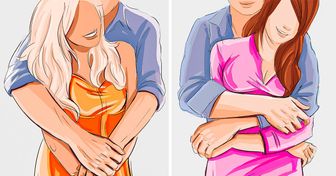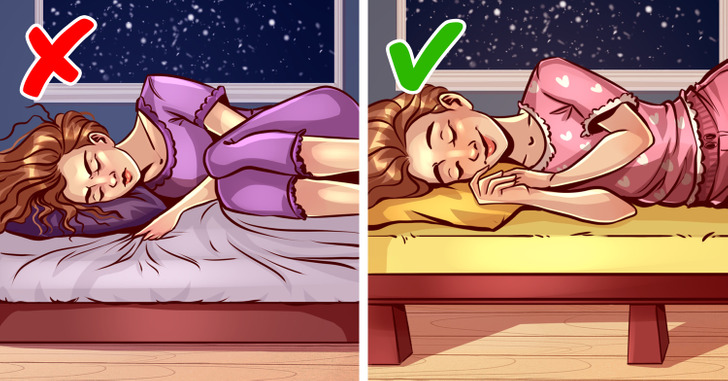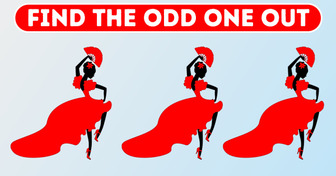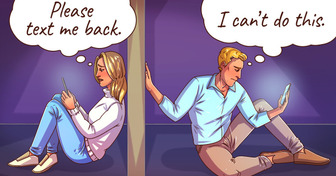The Way Your Partner Displays Affection Reveals What They Value in You

We come across a lot of things in our everyday lives, without truly thinking about them. For instance, the holes in pen caps were put in there to avoid choking incidents. Commonplace things around us often have a lot of science behind them, even if it’s not as exciting as launching a rocket into space.
Bright Side dug out some surprising facts about things we encounter daily, just to give your brain the boost it deserves with a shot of knowledge.

Some of us can perceive the smell after a rainstorm better than others. Science says the reason is the human’s ability to smell petrichor, an earthy aroma released when rain falls on dry earth. The human nose can smell one of its components, called geosmin, at 5-10 parts per trillion, the same as one drop of water in a full Olympic-sized swimming pool.
The other possible reasons could also be the mix of oils produced by some plants to protect them during dry seasons. Plus, electrical charges in the air often force oxygen molecules to rearrange as ozone, and some of us can smell that as well.
Roosters can crow at 100 decibels or louder, equivalent to a buzzing chainsaw, and yet they don’t go deaf. The reason for this is that half of the bird’s eardrum is covered by soft tissue that dampens incoming noise. When a rooster tilts its head back to crow, another part completely covers the ear canal like an automatic earplug.
The very first electric toaster was invented by Scotland’s Alan MacMasters in 1893 and was called the Eclipse Toaster. It toasted only one side of the bread and had to be manually flipped. General Electric launched its first electric toaster in 1909. Meanwhile, the sliced bread that you wanted to toast came later, in 1928 by Otto Frederick Rohwedder.
When computer scientists at the University of Cambridge began to make breakthroughs in the world of computers, they needed large amounts of coffee to do so. Only, the coffee percolator was in another room and when they went to fill their cup, it ended up being empty. So they rigged a camera and wrote a few lines of code, giving rise to the first webcam that recorded the coffee maker, in 1993.
The wavy blob of toothpaste you squeeze out onto your toothbrush has a name. It’s called a nurdle and, apparently, Colgate and Glaxo Smithkline went to court over its use.
Rice may be one of the oldest foods we eat today, with the earliest signs of cultivation proven dating back to 11,500 BCE, in China. The types of rice and the agriculture around it may have modernized, but even something as basic as rice pudding might have existed since 6,000 BCE, although recorded recipes come from 14th century Europe.
In 1957, Al Fielding and Marc Chavannes tried to create a textured wallpaper by sealing two shower curtains together, in a way that would trap air bubbles in them. Nobody wanted to put it on their walls, so they tried to use it as greenhouse insulation. That also failed, and it wasn’t until IBM started to use Bubble Wrap made by Sealed Air to wrap their parts in that it truly took off as a creation.
In 1926, Albert Einstein and his former student Leo Szilard designed a refrigerator that required no moving parts. He was inspired to make a safe refrigerator after accidents where toxic refrigerants, such as ammonia, methyl chloride, and sulfur dioxide, would end up leaking. That said, as refrigerator technology advanced, Einstein’s design lies forgotten.
Each day of your life counts and yet, due to the human need for sleep, we spend one-third of our lives in bed. To add insult to injury, we also spend more than 6 months of our life at traffic lights, waiting for the red light to turn green.
A popular belief is that the QWERTY layout of the keyboards came into existence to slow down typing in typewriters because they jammed. Remington typewriters made this layout popular, and they also provided training, for a fee, thus bettering profits. But the reason for the layout actually comes from Morse code and the inputs from the telegraphers who decoded the messages.
In a wonderfully ironic twist of things, the person who made the first cotton candy was a dentist. Dentist William Morrison made the first cotton candy in 1897, along with confectioner, John C. Warton. They sold their first boxes of this candy in 1904 for 25 cents a pop and called it fairy floss.
The expiration dates on a plastic water bottle are not for the water, considering it cannot expire, but for the plastic. After the expiration, the plastic may leach into the water, not making it toxic, but altering the taste. Also, all water bottles are manufactured at the same plant as other plastic bottles that house colas or sodas, so it’s just easier to stamp everything.
High-heeled shoes were first made for men. Persian soldiers in the 10th century wore them for elevation and stability during archery. Later, European aristocrats adopted this as fashion and as a military tactic to appear taller. Louis XIV was famous for being the king of heels, and the taller and redder the heel, the more well-placed you were.
Playing cards are more than just a game. They are significant in that each of the Kings in the card deck represents a historical character. The King of Spades is David, King of Israel, while the King of Clubs is Alexander the Great. The King of Hearts is Charlemagne, King of France, and the King of Diamonds is Roman emperor Caesar Augustus, or his father, Julius Caesar.

Beds are raised off the ground, on legs, for 2 reasons. One is that sleeping on the floor means there’s a greater chance of getting creepy crawlies on you, so a higher bed protects you from insects and even rodents. Second, keeping beds on the floor meant getting warm was tough during the winter, so another reason for beds becoming higher was to stay warmer.
Do you know of any interesting facts about commonplace things one doesn’t really think about too much? Which of these facts surprised you?











